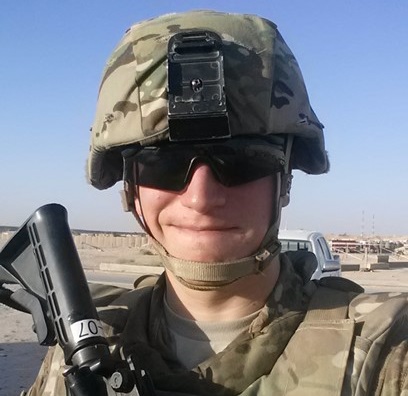A career in engineering can take shape in many ways. Perhaps you were born a ‘tinkerer’ and found yourself always building and rebuilding things during childhood. Or maybe you fell in love with big structures like where you saw your first concert. Perhaps you come from a long line of engineers and want to carry on the legacy. Or, if you are like Mike Picard, the military is where it all started. In this series we introduce you to three engineers who found their way from the military to engineering. We start with Mike Picard, Project Engineer at Brindley Engineering.
“I think construction engineering offers great career opportunities for those with military backgrounds because every project is unique in its scope, fieldwork, and its challenges, which is great for people who like to think on their feet.”
A: I served as a technical engineer in the Army Corps of Engineers for eight years. The primary role of a technical engineer is to support military construction projects such as roads, airfields, bases, and bridges by land surveying, soil analysis, and computer-aided design (CAD). My role was team leader in charge of leading small units of engineers in construction projects across the world including the US, Dominican Republic, Romania, Kuwait, and Iraq.
Q: What do you see as your biggest accomplishment(s) in the military?
A: My biggest accomplishment in the military was helping the soldiers under my command become more adept at their jobs and get promoted due to their accomplishments. I can proudly say that the soldiers under my command were some of the most proficient technical engineers in the military and every single one of them has subsequently finished or is in the process of finishing a college degree.
Q: How did you transition from the military to engineering?
A: My military career was in engineering, however, after I finished my term of service, I decided to go back to college and get my degree in mechanical engineering to open up further opportunities for myself.
Q: Why engineering?
A: My father is a drafter and that influenced me to pursue a career in engineering.
“The military gave me exposure to a wide breadth of engineering projects and experiences that those working in the civilian field might never get to experience.”
A: The military gave me exposure to a wide breadth of engineering projects and experiences that those working in the civilian field might never get to experience. In addition, it started my love for both working in an office and going out to the field and getting my hands dirty.
“One of the primary jobs we conducted in the military was land surveying. Thanks to that background, I have been taking over one of the newer services we do at Brindley Engineering — self-performing 3D laser scans.”
Q: What skills from the military do you use in your engineering job?
A: One of the primary jobs we conducted in the military was land surveying. Thanks to that background I have been taking over one of the newer services we do at Brindley Engineering which is self-performing 3D laser scans to generate models of clients’ facilities that can be imported into our CAD models.
Q: What are some good engineering jobs for people with a military background?
A: I think construction engineering offers great careers for veterans. There are numerous career opportunities for those with military backgrounds because every project is unique in its scope, fieldwork, and its challenges, which is great for people who like to think on their feet.
Fun Fact about Mike: Mike builds gaming computers and loves 3D printing, and painting miniatures. In addition to his military service, he spent two years working as a land surveyor for a local civil engineering firm.





0 Comments